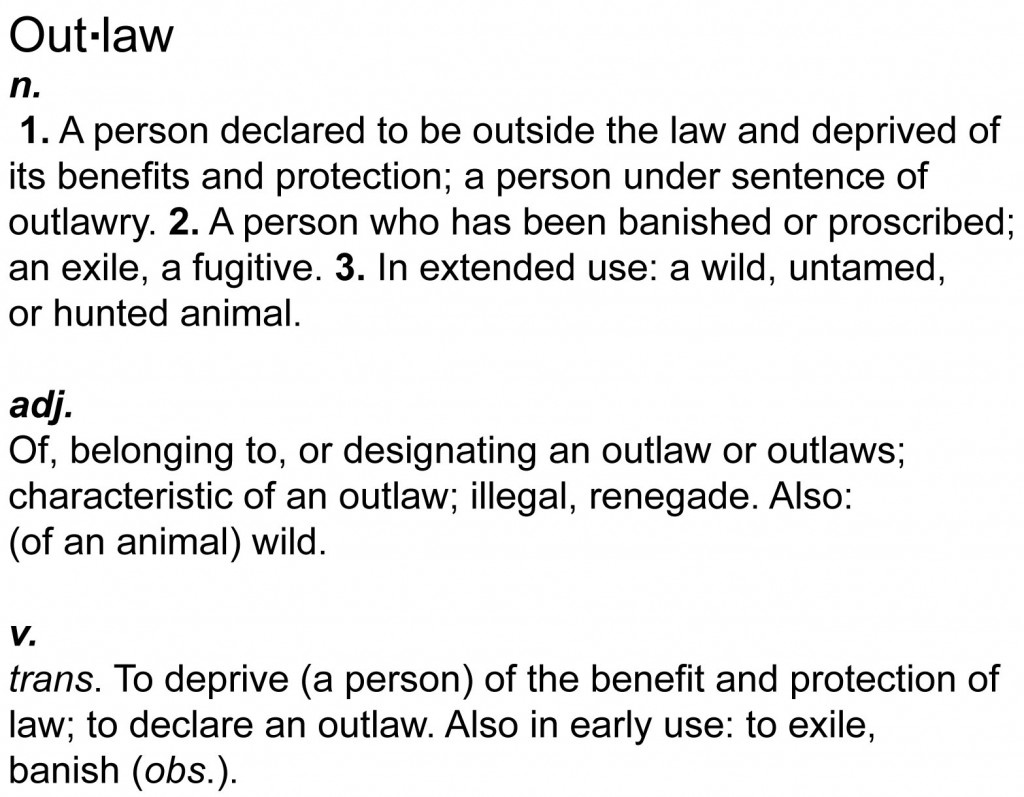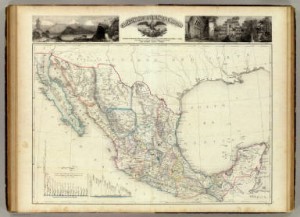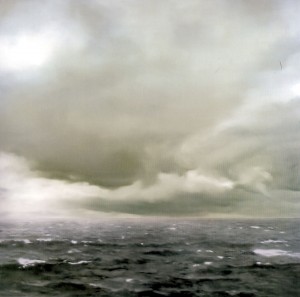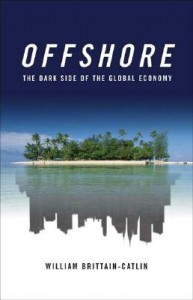 The word “outlaw”—outside of the law—implicitly articulates the intimate relationship between geography and the law. From the perspective of state-makers and capitalists, the groups of outlaws I’m collectively labeling “Motley Crews” (as a shorthand) pose a grave ideological and spatial threat to the normative relations between bourgeois philosophies of law, sovereignty, and the state (cf. Spatiality & Power). Poachers, commoners, pirates, bandits are all Motley Crews. Leaving aside the more complicated cases of rebel insurgents and mafia, Motley Crews’ transgressions against property could be classified as “social crimes” (Hay et al. 1975; Hobsbawm 1959). What’s more, they enact the critique that Marxists have long made against the alloyed ideologies of law, property, and state. In reporting on legislation against thefts of wood, Marx explained that the criminal nature of the theft was not in its attack against wood as a sensuous object, “but in the attack on the wood as part of the state system, an attack on the right to property as such” (1842). Drawing from a more consciously and politically assertive example, Rediker similarly explains that 18th Century pirate societies were wedded by a “legal philosophy that was not … an imitation of ‘the legal government’ but rather a critique of it” (2004:42). Continue reading
The word “outlaw”—outside of the law—implicitly articulates the intimate relationship between geography and the law. From the perspective of state-makers and capitalists, the groups of outlaws I’m collectively labeling “Motley Crews” (as a shorthand) pose a grave ideological and spatial threat to the normative relations between bourgeois philosophies of law, sovereignty, and the state (cf. Spatiality & Power). Poachers, commoners, pirates, bandits are all Motley Crews. Leaving aside the more complicated cases of rebel insurgents and mafia, Motley Crews’ transgressions against property could be classified as “social crimes” (Hay et al. 1975; Hobsbawm 1959). What’s more, they enact the critique that Marxists have long made against the alloyed ideologies of law, property, and state. In reporting on legislation against thefts of wood, Marx explained that the criminal nature of the theft was not in its attack against wood as a sensuous object, “but in the attack on the wood as part of the state system, an attack on the right to property as such” (1842). Drawing from a more consciously and politically assertive example, Rediker similarly explains that 18th Century pirate societies were wedded by a “legal philosophy that was not … an imitation of ‘the legal government’ but rather a critique of it” (2004:42). Continue reading
-
Recent Posts
Categories
- #Occupy
- Agriculture
- Antonio Gramsci
- Art
- Assemblages
- Bandits
- Boundaries
- Carl Schmitt
- City
- Critique
- David Harvey
- Development
- Dialectics
- Drugs
- Elites
- Everyday Life
- Forests
- Frontiers
- Gender
- Governmentality
- Guy Debord
- GWF Hegel
- Hegemony
- Henri Lefebvre
- Historical Materialism
- Historical-Geographies
- Illegality
- Insurgency/Counterinsurgency
- Interweb Motley
- Jester
- Karl Marx
- Land
- Law
- Maps
- Marxism
- Max Weber
- Media
- Michel Foucault
- Nation/Nationalism
- Networks
- Niccolo Machiavelli
- Peace
- Pirates
- Place
- Political Ecology
- Political Economy
- Post-Colonial
- Power
- Primitive Accumulation
- Race & Ethnicity
- Raymond Williams
- Scale
- Science & Tech.
- Security
- Sovereignty
- Spatiality
- Spectacle
- Territory
- Terror
- The Body
- The Sea
- The State
- Uncategorized
- Violence
- Work Hack
Archives
- February 2020
- September 2013
- August 2013
- June 2013
- May 2013
- April 2013
- March 2013
- February 2013
- January 2013
- December 2012
- November 2012
- October 2012
- September 2012
- August 2012
- June 2012
- May 2012
- April 2012
- March 2012
- February 2012
- January 2012
- December 2011
- November 2011
- October 2011
- September 2011
- August 2011
- July 2011
- June 2011
- May 2011
- April 2011
- March 2011
- February 2011
Fellow Tricksters
- Acme
- Antipode
- Cartographies of the Absolute
- Critical Legal Thinking
- Danger Room
- Decolonizing Solidarity
- Fragments & Correspondence
- Geographical Imaginations
- Gerard Toal
- Human Geography
- Monthly Review
- Mute
- New Left Review
- Open Geography
- Path to the Possible
- Peoples Geography
- Philosophy in a Time of Error
- Place Hacking
- Pop Theory
- Posthegemony
- Progressive Geographies
- Public Political Ecology Lab
- Radical Cartography
- Social Design Notes
- Society & Space
- Space and Politics
- Spatially Inclined
- Strange Maps
- Street Art Utopia
- The Disorder Of Things
- The Geography Collective
- Trevor Paglen
- Visual Complexity








